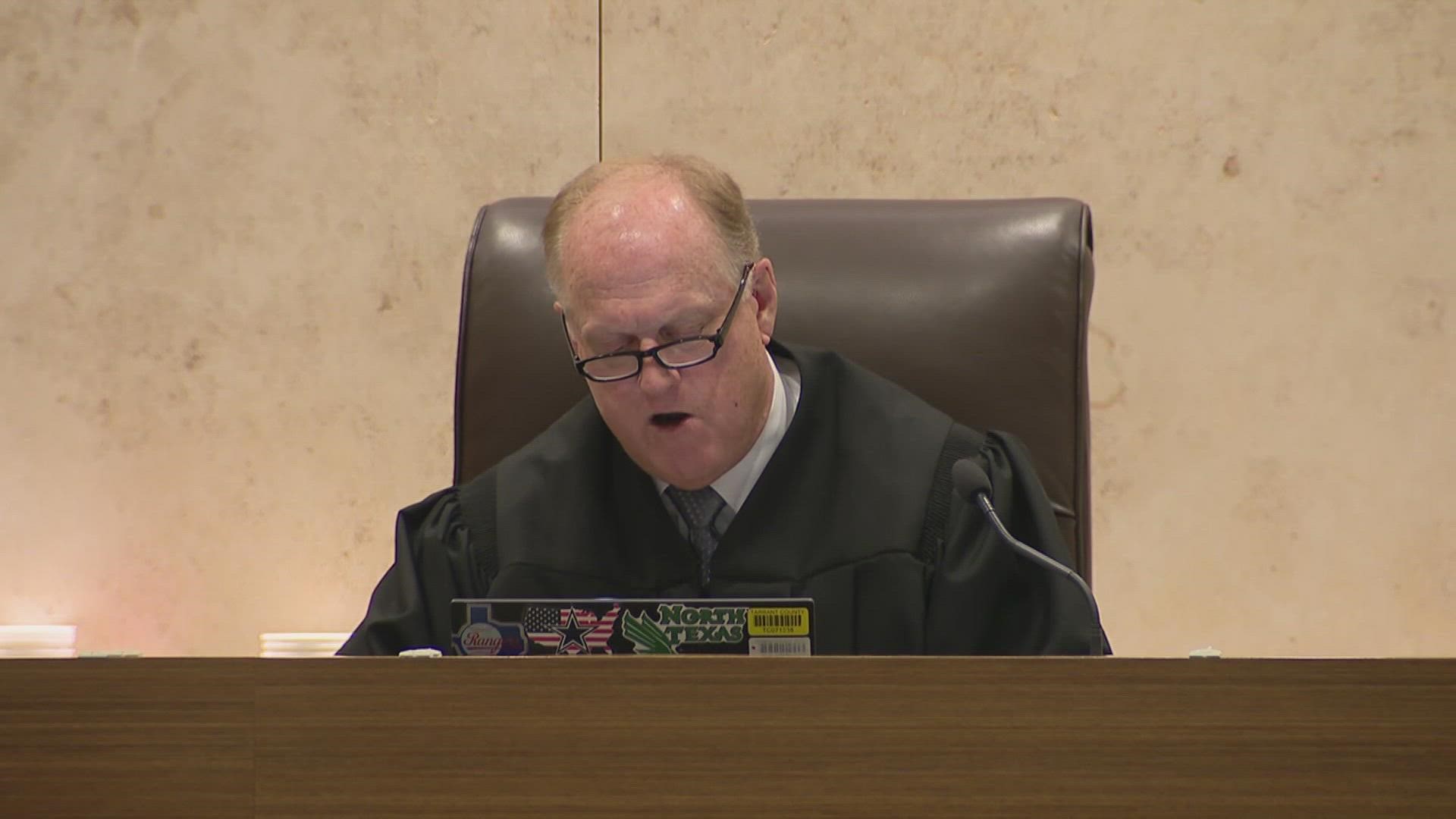FORT WORTH, Texas — Attorneys for Aaron Dean, the former Fort Worth police officer charged in the shooting death of Atatiana Jefferson, are asking for another delay in the trial, which was recently rescheduled to June.
Dean attorneys Robert K. Gill and D. Miles Brissette filed a motion to resolve scheduling conflicts between the Dean case and "older, statutory priority cases," according to court records.
The lawyers cited several cases on their schedule for late May and into June, including one with a bench trial scheduled for June 23, the same day the newly-scheduled Dean trial is set to begin.
Dean is charged with murder in Jefferson's death. He fatally shot her while responding to a welfare check at her home in October 2019, police said.
Gill "cannot be ready for the trial of all cases," the attorneys wrote in a motion. "Each case will require substantial preparation. In addition to required preparation time and trial time, all cases will require substantial time to cover pretrial issues."
In those other cases, some of the defendants have been in custody going back several years. Dean has been out of jail on bond as he awaits trial.
His attorneys argued that their other cases on the schedule should take priority.
Judge David Hagerman has not yet made a ruling on the motion.
In April, Hagerman granted a continuance in the case, rescheduling Dean's trial due to concerns over lead defense attorney Jim Lane's health and late-submitted evidence by the prosecution.
In December, when he pushed the trial to May, Hagerman said "no further continuances will be granted.”
Cases and trials can be delayed frequently for a number of reasons.
When scheduling cases, judges typically give priority to cases that involve defendants who have remained in jail, said Judge Michael Snipes, a retired Dallas County judge.
Judges will then typically take into account the oldest cases and then the seriousness of the offense involved in cases.
There is no state law that requires judges to prioritize case scheduling a certain way, but Snipes said most judges will follow that order when prioritizing scheduling.
The state Code of Criminal Procedure does have a speedy trial law for cases that are significantly delayed. The state law outlines trial priorities, giving preference to criminal cases over civil trials; cases in which the victim is under 14; and cases in which a defendant has been restored to competency.
It was unknown Wednesday how any of those factors would impact the scheduling of the Dean case.
How Atatiana Jefferson died
On the night Jefferson was killed, a neighbor had called the police requesting a welfare check after he saw the door open at Jefferson’s Fort Worth home.
Jefferson was playing video games with her then-8-year-old nephew when Dean walked into the backyard. She grabbed her gun and had gotten up to look out the window when she was shot, police records show. Jefferson died at the scene.
An arrest warrant stated three times that Dean did not announce he was a police officer when he walked around the house.
Dean declined to give a statement to Fort Worth investigators.
Dean resigned before he could be fired, Fort Worth Police Department officials have said.

